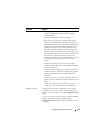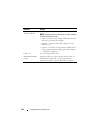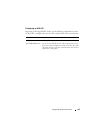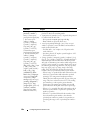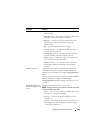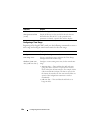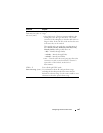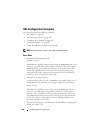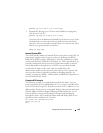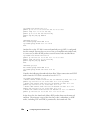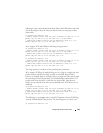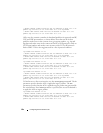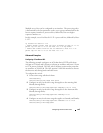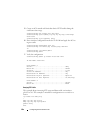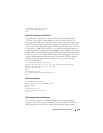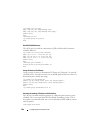
Configuring Access Control Lists 629
permit ip 10.0.46.0 0.0.1.255 any
• Inbound rule allowing access TO hosts with IP addresses ranging from
10.0.48.0 to 10.0.49.254:
permit ip any 10.0.48.0 0.0.1.255
As the last rule in an administrator-defined list, the narrower scope of this
inbound rule has no effect other than to possibly interfere with switch
operations. The system installs an implicit deny every rule after the end of
the last access group bound to an interface:
deny ip any any
Internal System ACLs
The switch installs a number of internal ACLS to trap packets to the CPU for
processing. Examples of these types of packets are spanning tree BPDUs,
IEEE 802.1x EAPOL packets, iSCSI packets, IP source guard packets, LLPF
packets, LLDP packets, IEEE 802.1AD packets, etc. These internal ACLs are
generally configured at the lowest priority (higher numerically) so that the
switch administrator, through the use of ACLs, can override the default
switch behavior. Some of the system rules are installed when the
administrator enables specific protocols; other rules are always present and
may have their behaviors altered by enabling or disabling protocols. For
example, spanning tree BPDUs, LLDP packets, and IEEE 802.1X packets are
never forwarded by the switch.
Complete ACL Example
The following example is a complete inbound ACL that allows access for
hosts connected to gi1/0/1 with IP address in 10.1.1.x range to send IP packets
to 192.168.0.X hosts on gi1/0/2. IP packets not from 10.1.1.x addresses or not
addressed to 192.168.0.x hosts are dropped. Packets with protocols other than
IP, DNS, ARP, or ICMP are dropped. Allowing ICMP supports the 10.1.1.x
hosts in reliably receiving and initiating TCP connections and pinging
through the switch. This example also allows ARP and DNS packets to any
destination and is suitable for an L2 switch.
mac access-list extended Allow-ARP
permit any any arp
exit



